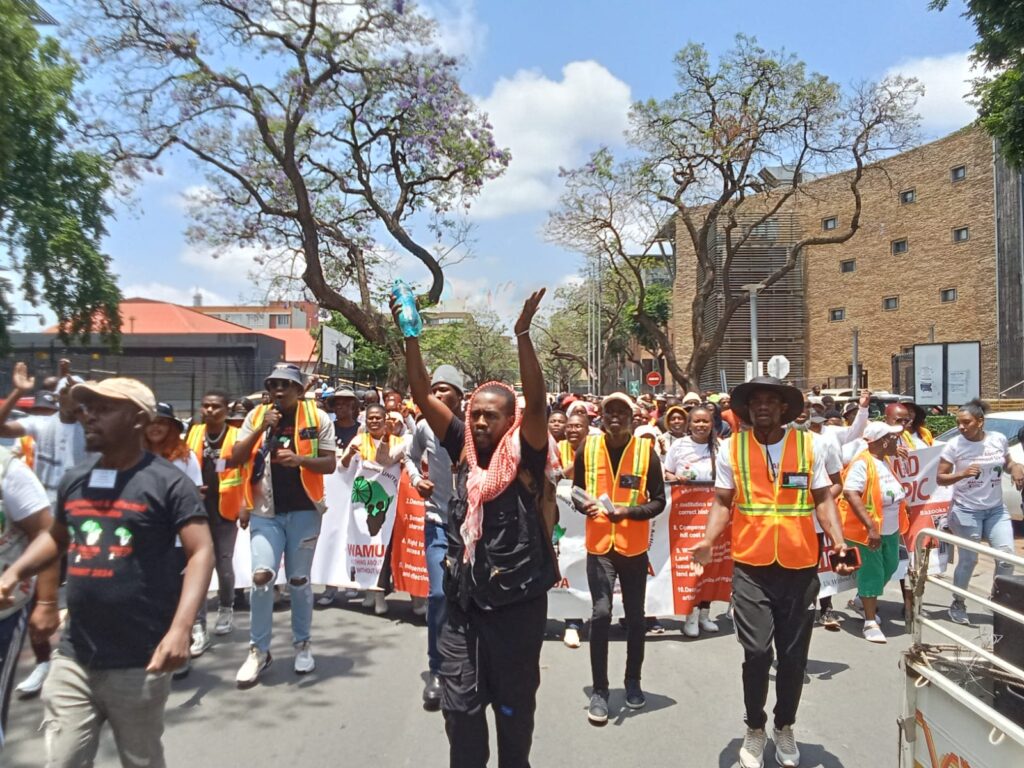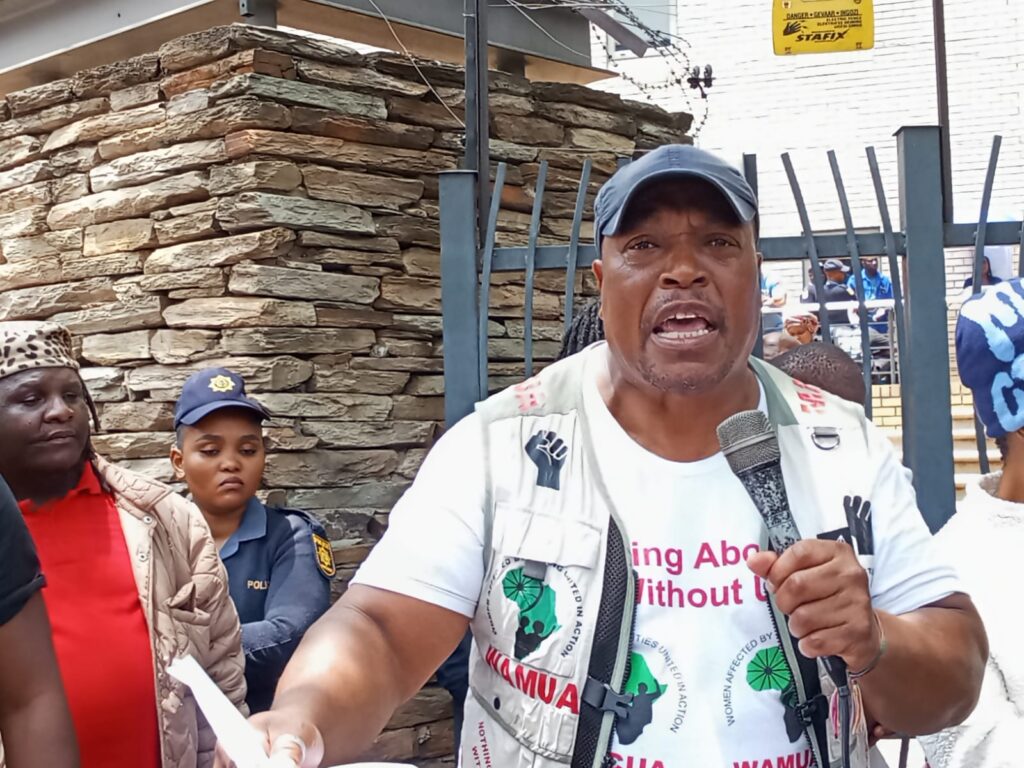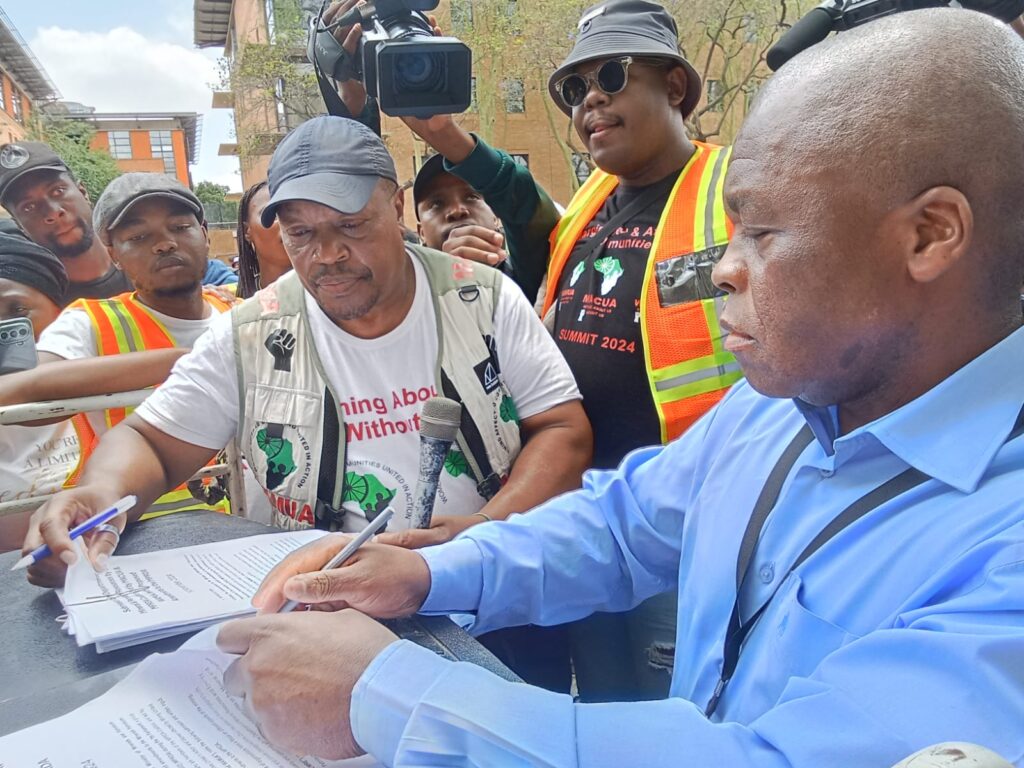
Hundreds of people living in mining-affected communities throughout South Africa marched to the Department of Mineral Resources and Energy in Tshwane on Thursday.
This as a way of showing their dissatisfaction regarding proposed amendments to laws governing the mining sector in the country.
The protest march was organised by the Mining Communities United In Action (MACUA) and supported by a variety of residents and political parties that feel aggrieved by the situation in the mining sector.
Part of their concerns contained in their memorandum are as follows:
1.The mining-affected communities are determined to realise their right to free prior and informed consent.
2. We want to make sure that the voices of mining-affected communities are centralised in the MPRDA which at the moment fails to address ongoing issues around consultation, consent and fulfilment of community development obligations by mining companies.

3. Presently consultation is used as a tick-box exercise as communities are not engaged meaningfully yet they are often impacted negatively as their interests are never considered.
4. Social and Labour Plans by mining companies to address socio-economic challenges in the mining-affected communities have so far been ineffective, so we want financial commitments from mining companies which correspond with their profits.
5. Mining-affected communities want access to documents held by mining companies regarding the safeguarding of the environment and Constitutional rights of the local communities, because in most cases mining companies refuse to share this critical information.
6. MACUA is aggrieved by the state’s efforts to criminalise young black people who are desperate to earn a living through artisinal mining activities.
President of the General Industries Workers Union Mametlwe Sebei, who is a lawyer by profession, told Tshwane Talks at the march that the mining situation in South Africa is a continuation of the same old colonial mining system that contributed to the misery of black people since time immemorial.

“Scandalously, the same colonial mining system continues thirty years into South Africa’s democracy because these foreign-owned mining companies don’t make room for diversification of skills and benefitiation of the raw minerals in South Africa, but all that they do is to use cheap labour and send all profits from mining activities to their home counties overseas,” said Sebei.
“Out of R882 billion rand emanating from the sale of mineral products, only less than R1, 8 billion thereof were bought and used in South Africa,” he said.
“Wherever mines are situated there must be visible development in terms of houses, schools and roads for the benefit of communities living near those mines,” he said.
He criticised Minister in the Presidency Ntshavheni for saying the illegal miners who refuse to come up to the surface at the Stilfontein mines won’t be given food, basic medication and water.
“We are here to arrest the Department of Mineral Resources and Energy and take it to jail because it is responsible for shutting down of mine shafts at Stilfontein where our comrades are doing artisinal mining, and what we are seeing now at Stilfontein is similar to what happened at Marikana when our comrades were shot and killed while demanding a living wage,” said a MACUA official.

EFF member Lindokuhle Xayiso told Tshwane Talks that he supports the march organised by MACUA because as an activist his duty is to ventilate issues of communities that are not fully expressed on issues like compliance and implementation of SLPs by mining companies.
“When black people do small-scale mining, they are called Zama- Zamas, but when white establishments do mining they are called artisinal miners and this is racial discrimination against black people,” said Xayiso.
Tshwane Talks readers have been able to read stories in this publication for free for over two years now. We still want our readers to access our stories for free, but we are asking those among our readers who can afford it to contribute at least R30 a month to cover some of the costs of publishing this independent, non-aligned online newspaper which gives a voice to all sectors of society irrespective of race, colour, creed, religion, or political affiliation. You may make your contribution by depositing at least R30 a month into Tshwane Talks' bank account. Details are as follows:
Bank Details
Bank: Standard Bank
Account Number: 10225548834
Account Type: Cheque Account